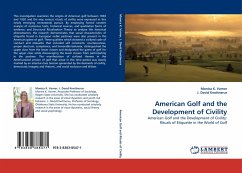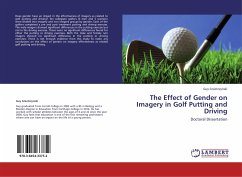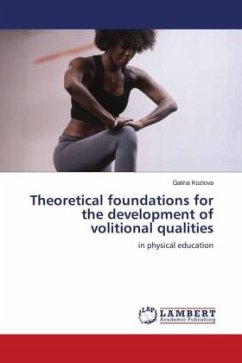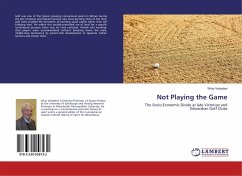
American Golf and the Development of Civility
American Golf and the Development of Civility: Rituals of Etiquette in the World of Golf
Versandkostenfrei!
Versandfertig in 6-10 Tagen
45,99 €
inkl. MwSt.

PAYBACK Punkte
23 °P sammeln!
This investigation examines the origins of American golf between 1894 and 1920 and the way various rituals of civility were expressed in this newly emerging recreational pursuit. By employing formal content analysis of numerous texts, historical sources, and qualitative forms of evidence, and Structural Ritualization Theory to analyze this historical phenomenon, the research demonstrates that social characteristics of etiquette found in European noble pastimes were also present in the American game of golf. These qualities which dictated a civilized code of conduct and etiquette that included ...
This investigation examines the origins of American golf between 1894 and 1920 and the way various rituals of civility were expressed in this newly emerging recreational pursuit. By employing formal content analysis of numerous texts, historical sources, and qualitative forms of evidence, and Structural Ritualization Theory to analyze this historical phenomenon, the research demonstrates that social characteristics of etiquette found in European noble pastimes were also present in the American game of golf. These qualities which dictated a civilized code of conduct and etiquette that included self constraint, courteousness, proper decorum, compliance, and honorable behavior, distinguished the upper class from the lower classes and designated the game of golf for the upper class while discouraging the lower classes from participating in the pastime. The manifestation of civilized themes in the Americanized version of golf that arose in this time period was clearly marked by an internal class tension generated by the demands of civility, democratic imagery and rhetoric, and social exclusion and elitism.












